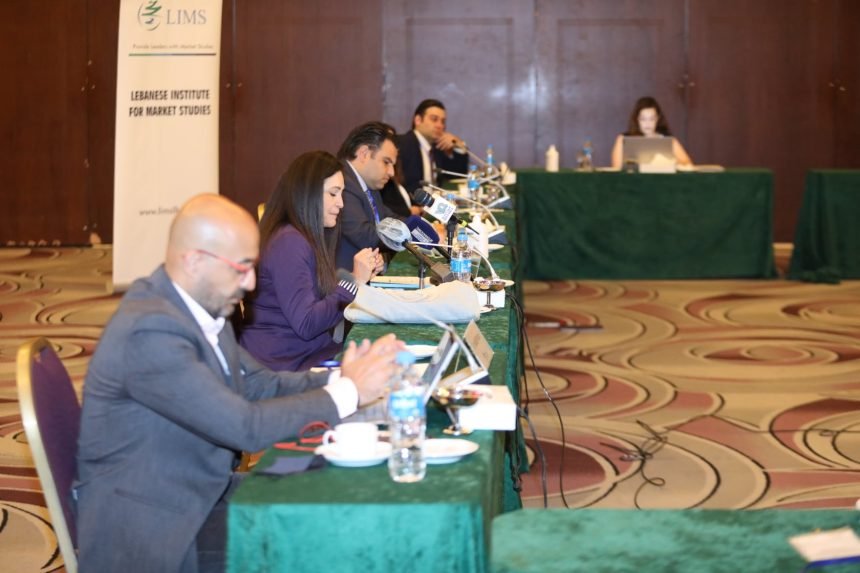LIMS organized a roundtable aimed at suggesting alternatives to the subsidies program. The conference gathered opinion leaders including 11 experts, 8 journalists, 7 academics, 6 think tank leaders, 5 businessmen and 4 speakers. Founder and Director of the Lebanon Crisis Observatory Dr. Nasser Yassine was the first speaker. He helped the Economic and Social Council draft a reform to the subsidy program that would find a consensus between representatives of political parties and concerned ministers. His presentation focused on the importance of removing subsidies progressively while making cash cards the replacement.
Dr. Leila Dagher, the economic adviser to the prime minister and to the Minister of Economy in Lebanon was the second speaker. She presented the inefficiencies of the subsidy program and argued for their immediate replacement with cash cards ($50 per month for adults and $25 for children). Mrs. Haneen Sayed, lead specialist at the World Bank working on human development and social protection for the Middle East and North Africa region was the third speaker. Since the onset of the economic and financial crisis in Lebanon, she has been leading the World Bank’s social response to the crisis, including a large-scale emergency social safety net project. She explained that there are many lessons to be learned from the experiences of Jordan, India, and Iran who are going through several phases to remove subsidies. She also highlighted the importance of a QUBI and stressed on the challenges associated with the execution of such a program. Finally, Garabed Fakrajian, policy analyst at LIMS, presented a paper arguing for repealing subsidies entirely, immediately, and unconditionally, to allow market adjustments to take place and eliminate all shortages. He also recommended establishing a currency board to stabilize the Lebanese pound and stop inflation, along with deregulating the public transport sector, to allow for an alternative to private vehicles to develop.
A Quick and Effective Alternative to the Central Bank Subsidy Program

